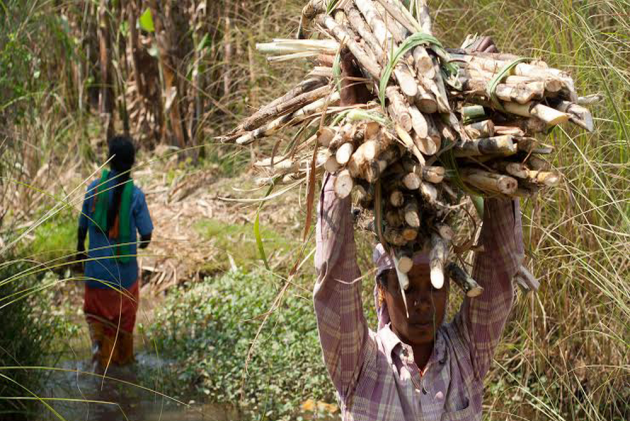Rs 7,000-crore bailout package for sugarcane farmers

खेती और वृक्ष-खेती के संरक्षण में मल्च है अत्यंत महत्वपूर्ण
June 5, 2018
जम्मू के ८० हेक्टेयर मैदानी इलाके में लीची गाँव बसाने की योजना
June 8, 2018AgriNation News Network
New Delhi. 6 June 2018
The Cabinet on Wednesday approved a Rs 7,000-crore bailout package and set the minimum selling price for sugar at Rs 29 per kg to support the struggling sector.
“In order to remove the problem of liquidity of sugar mills resulting in accumulation of huge cane price arrears of farmers, the Union Cabinet chaired by Prime Minister Narendra Modi has approved … measures involving total amount of about Rs 7,000 crore,” Union Minister for Law, Justice and IT Ravi Shankar Prasad said.
The decision of Cabinet Committee on Economic Affairs (CCEA) comes as excess production in the current sugar season has depressed its market price, adversely affecting the liquidity position of sugar mills leading to accumulation of Rs 22,000-crore dues to the farmers.
The package comprises Rs 1,175 crore for creating a 30 lakh MT buffer stock, Rs 4,440 crore as soft loan for mill owners to increase ethanol production capacity to divert surplus sugarcane and Rs 1,332 crore towards interest subvention for the loan, the Cabinet said in a note.
“Government will bear interest subvention of maximum Rs 1,332 crore over a period of five years including moratorium period of one year on estimated bank loan amounting to Rs 4,440 crore to be sanctioned to the sugar mills by the banks over a period of three years,” it said.
Meanwhile, ISMA welcomes the Cabinet’s decisions taken today to help the sugar mills and cane farmers. The decision to fix a minimum ex-mill sale price of sugar at Rs.29 per kilo will improve ex-mill prices from current levels of around Rs. 28 per kilo, but may not impact the retail prices in any significant way. However, the proposed minimum price of Rs. 29 per kilo is not enough to cover the cost of sugarcane at FRP of Rs.290 per quintal at the current all India average recovery of 10.8%. The ex-mill sugar price which supports the current FRP works out to around Rs.35 per kilo and therefore the Rs.29 is inadequate. It will, therefore, be a challenge to expect the sugar industry to clear the huge cane price arrears on this basis.
The other step of providing subsidised loans for ethanol production capacity is an excellent move. It will encourage setting up of more distilleries in the country over the next 3 years and will help in diverting some of the surplus sugarcane into ethanol and reduce surplus sugar in the long run. However the decision to impose stock holding limits on sugar mills tantamount to controls on sugar sales which is not the right way to move into the future. Creation of buffer stocks of 30 lakh tons will reduce some surplus sugar from the market, though only for a year, and will improve market sentiments to support domestic prices. What is concerning is that there is no idea or proposal on rationalisation of cane pricing policy, which is actually the main reason for all the problems of the industry today.
————————————————————————————————


